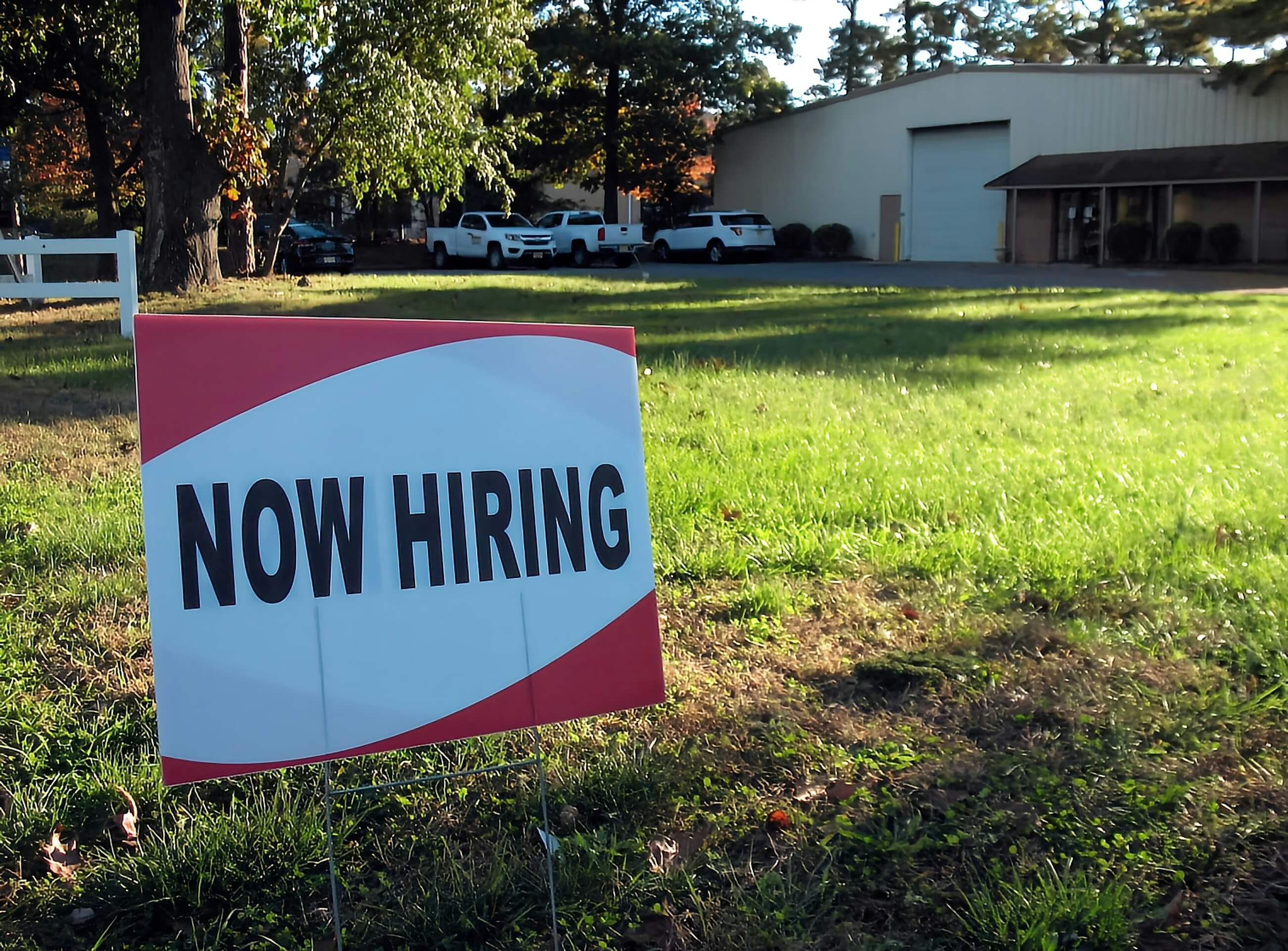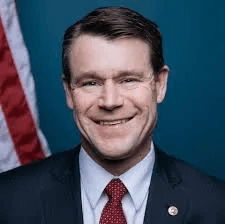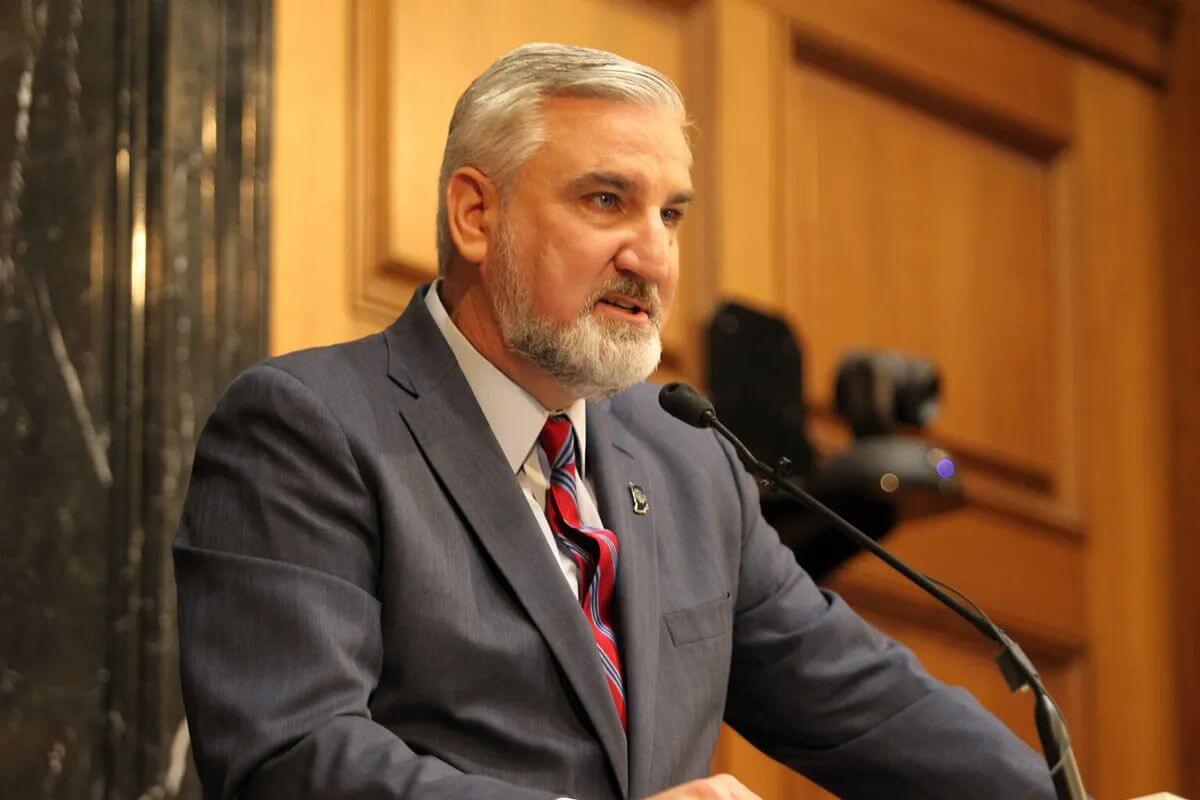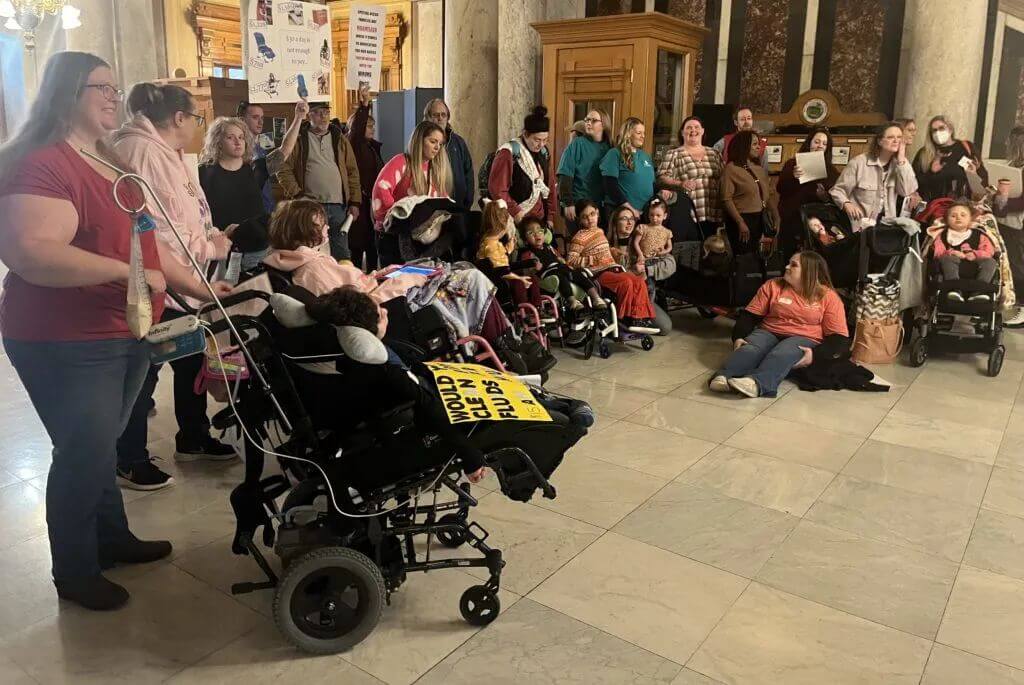1/29 Torchbearer Weekly Policy Update
Hope you had a great weekend. Thank you letting us be your trusted source for local, state, and federal policy updates.
- Indiana Unemployment Trends Downward in December
- Young, Carter Introduce Legislation to Improve IRS Efficiency and Accelerate the Processing of Tax Returns
- In Milestone, Black Women from South Carolina and Indiana Confirmed as Federal Judges
- Indiana Earns Failing Grades on Tobacco Prevention and Cessation Policies
- Huge Month for the U.S. Economy
- Holcomb Declares Solidarity with Texas Border Strategy
- Proposed FSSA Change for Personal Attendants of Medically Complex Children Spurs Rally
- A ‘Squishy Language’ Problem with an IEDC Tax Credit Program
- Conservative Credentials Take Center Stage in Gubernatorial Forum
- Share the Torchbearer Newsletter with Your Network!
- Important Dates
Let’s dive in.
Indiana Unemployment Trends Downward in December

Indiana's unemployment rate decreased from 3.7% to 3.6% in December.
Why it matters: This information is important because it shows a positive trend in the state's job market.
By the numbers: Indiana's total private employment stands at 2,858,500, just below the state's peak employment. The state had 99,200 open job postings and 16,206 unemployment insurance claims filed.
The big picture: Despite a slight decrease in private sector jobs, there were gains in other sectors such as professional and business services, private educational and health services, and manufacturing.
What's next: It will be interesting to see if the positive trend in the job market continues in the coming months. (Inside Indiana Business)
Young, Carter Introduce Legislation to Improve IRS Efficiency and Accelerate the Processing of Tax Returns

U.S. Senators Todd Young (R-Ind.) and Tom Carper (D-Del.) introduced the Barcode Automation for Revenue Collection to Organize Disbursement and Enhance (BARCODE) Efficiency Act, legislation that would greatly improve the processing of Internal Revenue Service (IRS) paper tax returns.
Why it matters: Implementing technology such as 2-D barcodes would conserve resources, minimize processing errors, and reduce delays in refund distribution to taxpayers.
By the numbers: No relevant numerical facts from the user's text.
The big picture: The BARCODE Efficiency Act would require scannable 2-D barcodes on electronically prepared paper tax returns to improve processing efficiency.
What's next: The bill works well with the IRS's plans and funding to modernize processing protocols and clear backlogs. (Newsroom)
In Milestone, Black Women from South Carolina and Indiana Confirmed as Federal Judges

The U.S. Senate confirmed two federal judges, bringing the total number of Black women appointed by President Joe Biden to 35. Judge Cristal Brisco is now the first Black judge and woman of color to serve as a federal judge in the Northern District of Indiana.
Why it matters: This milestone increases representation and diversity on the federal bench.
By the numbers: Biden has nominated 170 judges confirmed by the Senate so far.
The big picture: Historically, only 98 Black women have been confirmed as lifetime federal judges. Both of Indiana’s senators supported Brisco’s nomination.
What's next: There are currently 62 judicial vacancies across U.S. courts. (Indiana Capital Chronicle)
Indiana Earns Failing Grades on Tobacco Prevention and Cessation Policies

The American Lung Association released its 2024 State of Tobacco Control report, evaluating state efforts to eliminate tobacco use.
Why it matters: Indiana scored failing grades in most categories, indicating a need for improvement in tobacco prevention and cessation programs.
By the numbers: Indiana's tobacco prevention and cessation programs are underfunded at $10.9 million annually, far below the CDC's recommended level of $73.5 million.
The big picture: Despite some progress in reducing cigarette consumption, Indiana still faces challenges in curbing tobacco usage, including low funding and outdated cigarette taxes.
Yes, but: Lawmakers have been hesitant to increase the cigarette tax, potentially impacting low-income individuals who are more likely to use tobacco.
What's next: Advocates are focused on educating lawmakers and pushing for the inclusion of e-cigarettes in smoke-free air laws to further tobacco prevention efforts. (Louisville Public Media)
Huge Month for the U.S. Economy

Nearly all the indicators released in recent weeks tell the same story: evaporating inflation alongside still-humming economic activity.
Why it matters: It's a turnaround from earlier in the inflation fight, when strong data may have spooked financial markets and policymakers. Now it's a sign that inflation can be beaten without a painful downturn.
What they're saying: "Any way you look at it, the American economy looks upbeat," Lael Brainard, the top White House economic adviser, said during a briefing with reporters this morning.
- "We looked historically: We've never had a year where inflation has declined this fast while the economy has grown above trend, and unemployment has remained stable at a low rate."
What's new: Some of the last major data points before Fed officials' meeting next week were released this morning.
- In December, the central bank's preferred gauge of inflation, the Personal Consumption Expenditures Price Index, was up 2.6% over the prior year, in line with its November reading.
- But the core measure that excludes energy and food prices — which is considered to be a better gauge of underlying inflation — was 2.9%, compared to 3.2% the previous month.
- Even more impressive is that the core index is running at a 1.5% annualized rate over the last three months — below the Fed's 2% target.
Between the lines: The ongoing easing of price pressures came as Americans' incomes continued to increase in real terms and shoppers kept spending at a healthy pace.
- Disposable income, adjusted for inflation, rose by 0.1% after a 0.5% increase in November.
- Consumer spending increased by a half percentage point in real terms, the same as the prior month.
The intrigue: It's a very different dynamic than just a year ago. Recall in early 2023 when a run of strong data showed booming consumer spending and eye-popping job gains — paired with hotter inflation data that showed core PCE running at a nearly 3% three-month annualized rate.
- At the time, it raised concerns the Fed might have to slam the brakes on the economy even harder.
Where it stands: Now officials face the opposite scenario — inflation looks to be cooling much faster than many expected. That has allowed them to open the door to rate cuts later this year — though exactly when that will happen is still hazy.
The bottom line: "[W]e are no longer allowed to say 'we are landing softly' when we have been sitting on the runway for many months," Arindrajit Dube, an economics professor at University of Massachusetts Amherst, tweeted in part.
- "The great inflation of 2021/22 is over and that's it."
What's next: The Employment Cost Index will be released Wednesday, hours before Fed officials will likely stand pat on rates but possibly hint at when cuts could occur.
- Meanwhile, the January jobs report is out next Friday. (Axios)
Holcomb Declares Solidarity with Texas Border Strategy

Indiana Gov. Eric Holcomb and 24 other Republican governors released a joint statement in solidarity with Texas Gov. Greg Abbott's border policies, supporting the use of 'every tool and strategy' to secure the border, including razor wire fences.
Why it matters: The governors criticized President Biden's handling of the migrant influx and argued that states have a right to self-defense under the U.S. Constitution.
The big picture: The statement highlights the governors' concerns about unauthorized immigration and the need to protect the sovereignty of their states and the nation.
What's next: The governors' statement signals their support for Texas and sets the stage for potential actions by other states to address the border situation. (Indiana Capital Chronicle)
Proposed FSSA Change for Personal Attendants of Medically Complex Children Spurs Rally

Thousands of Indiana families, including the Ruzics, could lose access to caregiving benefits following an administrative change from the Family and Social Services Administration (FSSA). The change aims to cut costs and targets programs related to the Aged & Disabled waiver. Dozens rallied at the Indiana Statehouse to protest the change.
Why it matters: If the waiver is stripped, the most vulnerable individuals in Indiana will not receive medical care due to the severe shortage of nurses and attendant care.
The big picture: The FSSA announced eight changes, including the administrative change on Legally Responsible Individuals (LRIs), as a response to a $1 billion Medicaid shortfall. The agency will closely monitor the financial impact of the solutions.
What's next: FSSA declined to comment on whether further program changes are possible. The public comment period for the change ends on Feb. 16. (Indiana Capital Chronicle)
A ‘Squishy Language’ Problem with an IEDC Tax Credit Program

Investigative reporter uncovers discrepancies in Indiana's Hoosier Business Investment tax credit program.
Why it matters: The investigation reveals that companies may have received tax credits without meeting their investment goals, raising concerns about the effectiveness of the state's economic development programs.
By the numbers: In 96 out of 277 contracts reviewed, companies appeared to have missed their self-investment targets but still received tax credits.
The big picture: Poorly-drafted contracts and flexible language may have allowed companies to receive tax credits without meeting their commitments.
Yes, but: State Representative Gregory Porter expresses skepticism about the effectiveness of other business incentive programs offered by the Indiana Economic Development Corporation (IEDC).
What's next: A bill has been introduced in the General Assembly to increase oversight on the IEDC and require more transparency in its incentive programs. (Fox 59)
Conservative Credentials Take Center Stage in Gubernatorial Forum

The five major Republican candidates for governor tried to woo voters Thursday evening in a forum geared toward a conservative crowd in the wealthy and reliably Republican Carmel.
Why it matters: All candidates made promises to eliminate the donor-funded Office of Equity, Inclusion and Opportunity tasked with measuring and tracking Indiana equity outcomes.
The big picture: The forum covered a range of topics including emergency powers, health care, economic development, and education.
Yes, but: Former Attorney General Curtis Hill called out legislators for not stepping in during the pandemic.
What's next: The primary will be on May 7 and the winner will face Democrat Jennifer McCormick and Libertarian Donald Rainwater in the November general election. (Indiana Capital Chronicle)
Share the Torchbearer Newsletter with Your Network!

Not signed up for our weekly newsletter? Sign up today!
Important Dates:

Tuesday, January 30th - House Committee Report Deadline
Thursday, February 1st - House 2nd Reading Deadline
Thursday, February 1st - Senate Committee Report Deadline
Monday, February 5th - House 3rd Reading Deadline
Monday, February 5th - Senate 2nd Reading Deadline
Tuesday, February 6th - Senate 3rd Reading Deadline
Tuesday, February 27th - House Committee Report Deadline
Thursday, February 29th - House 2nd Reading Deadline
Thursday, February 29th - Senate Committee Report Deadline
Monday, March 4th - House 3rd Reading Deadline
Monday, March 4th - Senate 2nd Reading Deadline
Tuesday, March 5th - Senate 3rd Reading Deadline
Thursday, March 14 - Last Day to Adjourn Sine Die
